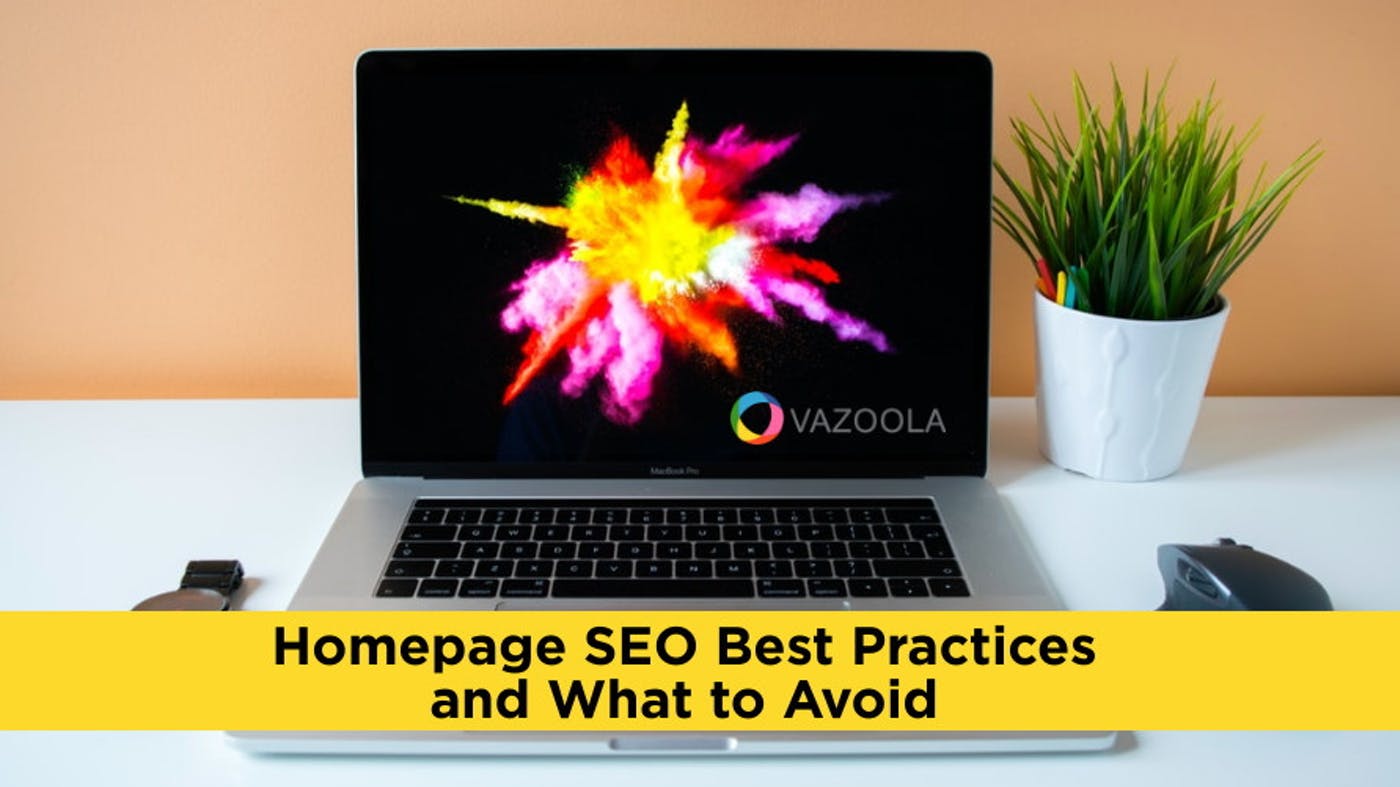Homepage SEO Best Practices and What to Avoid
Dec 02, 2019
Written by Casey Bjorkdahl

Casey Bjorkdahl is one of the pioneering thought leaders in the SEO community. In 2010, Casey co-founded Vazoola after working for a Digital Marketing Agency for five years in New York City. Vazoola is now one of the fastest growing and most widely recognized SEO marketing firms in the country.

Your website is a critical online asset for your business. You need a strong web presence to stay ahead of the competition.
There are several digital practices you should take into consideration to ensure your website is working for you.
One way to find your success is by employing the right search engine optimization (SEO) practices when designing your site.
SEO is an essential aspect of development, so you need to understand SEO best practices that get your website noticed.
Your homepage is essentially your chance to make a strong first impression with the consumer. It is also one of the main ways you can tell Google and other search engines what the theme or focus of your website is.
Let's look at critical steps for optimizing your homepage.
Formulate a Plan
Before you take any action, you want to give yourself a bit of time to plan things out. If you have never tried to optimize your web assets before, then you may need to go about the process slowly.
Start researching keywords that are relevant to your specific industry. There are several helpful tools and databases available online to assist you with this task.
The idea is to find words and phrases that consumers use when searching for goods and services that you offer. Once you have some keywords, you can start creating the copy for your site.
In the past, many web developers got into the habit of keyword stuffing. This was a shady practice of using numerous keywords and phrases without context to drive traffic to a site.
Though it did work for a time, Google and other search engines took action to prevent these practices from seeing success.
For your keywords to matter, you need to create relevant, engaging copy that provides information customers will find interesting.
Take the time you need to research this process, as it will play a big part in your success online.
Structuring Information
Simply finding the right keywords and putting them into the copy is not enough to get your site noticed.
You also need to structure the copy in a way that helps Google and its bots understand that your site is legitimate.
One way that brands can achieve this is through a title tag. Essentially, this involves putting a specific keyword into your H1 or H2 headers.
Google and other search engines focus on title tags when analyzing a site, and it can make a big difference for your endeavors.
Not only does highlighting certain information help you rank higher, but it also creates a better user experience for visitors.
When keyword stuffing was a common tactic, many consumers would be led to frustratingly unhelpful sites.
Now, consumers are more discerning about what sites they visit. If your site is not easy to navigate or has information that is difficult to read and understand, you will not be able to drive organic traffic to your web pages.
Consider how a user will experience your website to see better search results and longer browsing times.
Content Is Everything
Using what you’ve learned while marketing various social media campaigns can also prove useful when designing your site.
Many business owners are familiar with the importance of content online. To grab the attention of potential customers, you need to create and share all kinds of images, blog posts, and videos with your followers.
The same is true of your web pages. When you include relevant and enticing content on your site, it encourages visitors to stick around and convert them from browsers into customers.
Customer testimonials can be quite powerful when it comes to including the right content on your site.
Instead of merely presenting the customer quotes as text, try to incorporate the messages into infographics.
Studies have shown that information presented visually is much more likely to capture the attention of someone casually surfing the net.
Try to avoid falling into the trap of sharing the same kind of content each day. Variety will help you remain relevant, so stay aware of the latest trends sweeping through your industry.
Discover the Best Fit
For your website to rank high on Google and other search engines, you need to understand the best SEO practices.
Explore your options and discover what tactics will help you reach your business goals and give your clients the best user experience possible.

